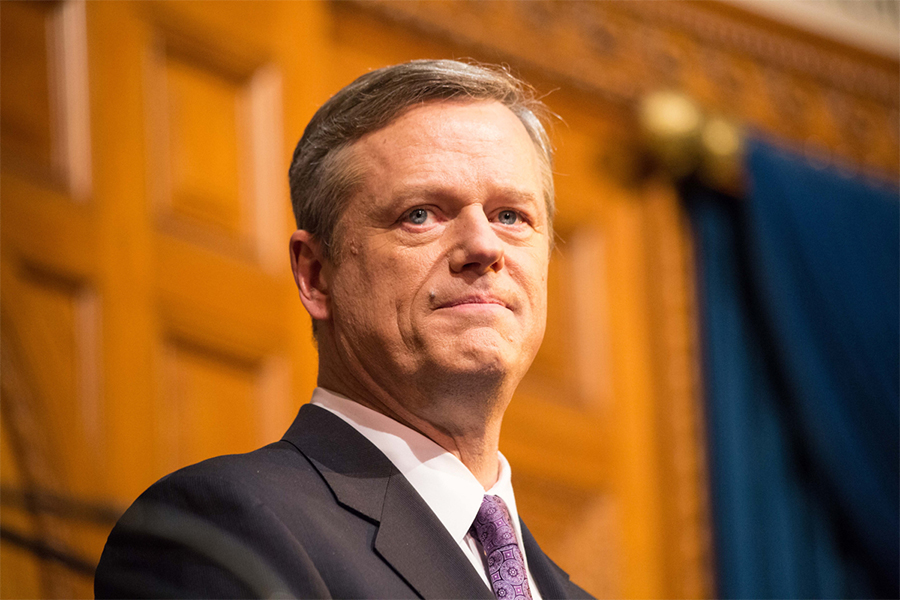Unlike Elizabeth Warren, Charlie Baker Wants to Keep the Electoral College
He told the Herald he opposes the National Popular Vote movement.

Photo via Governor’s Office/Alastair Pike
Apparently the popular vote isn’t quite as popular as its name would suggest—at least not according to Gov. Charlie Baker.
Baker told the Boston Herald that he’s in favor of keeping the electoral college system. By giving weight to the votes of smaller, more rural states, he said it would prevent an election completely dictated by bigger states.
“My biggest problem with going to a majority vote is you basically put the election in the hands of a whole bunch of big states and everybody else doesn’t matter anymore,” Baker told the Herald Tuesday. “I don’t think it’s fair to small states to basically take that out of the process by going to a majority vote.”
Sen. Elizabeth Warren joined the Democratic movement to abolish the electoral college in a CNN town hall Monday night. Those who want to eliminate the electoral college argue that the reverse of Baker’s claim is true, and that rather than giving all power to the big states, it would incentivize candidates to compete in every state, even the ones that are likely to vote in the majority for their opponents, since it would all add to their overall total.
In 2012, all campaign events held by either candidate in the general election took place in just 12 states. In 2016, 94 percent of events were held in the 12 states where Trump’s support was hovering around 50 percent.
Charlie Baker made a similar argument to Trump about small states and the electoral college. It was wrong then and is wrong now. https://t.co/8VigCMHDhX pic.twitter.com/959CzmVlx8
— Steve Koczela (@skoczela) March 20, 2019
Several states, from big players like Illinois and California to small fries like Rhode Island, have already passed the National Popular Vote Interstate Compact, agreeing to dedicate their electoral votes to the presidential candidate who wins the popular vote. Baker’s own Massachusetts signed onto the compact in 2010, under his predecessor Deval Patrick.
While Baker doesn’t support the pact, he recognizes Massachusetts’ membership is pretty set in stone, unlikely to be reversed under the current administration.
“I don’t know what kind of appetite there would be in the Legislature,” he said.


